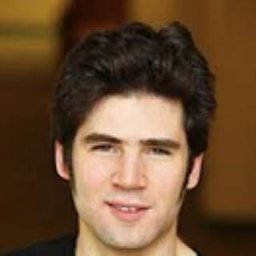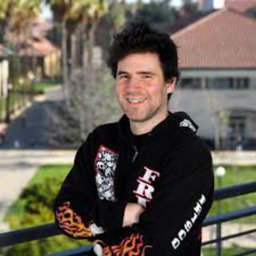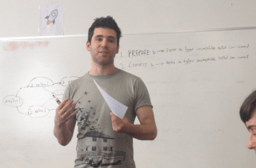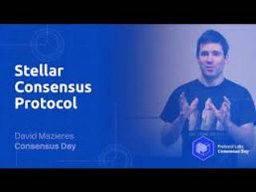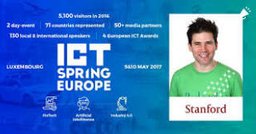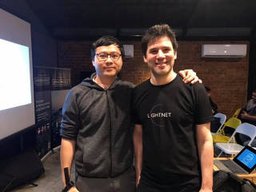David Mazières
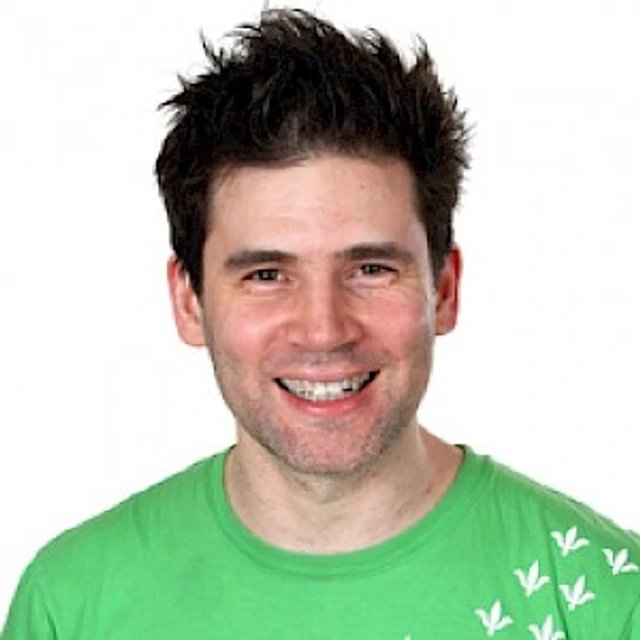
David Mazières
David Mazières is an American scientist, Professor of Computer science and blockchain personality. He is identify as co-founder and chief Scientist of Stellar Network, an open-source, decentralized payment protocol that allows for fast, cross-border transactions between any pair currencies.[1][2]
Early Life & Education
David was born and brought up in New York City, USA. He completed schooling from Commonwealth High School. He is a graduate of Harvard University, where he obtained Bachelor of Arts in Computer Science in 1994. He studied Electrical engineering and Computer Science (EECS) at Massachusetts Institute of Technology (MIT) and completed his PhD in 2000.[3][4]
Early Career
David has been involved in computer systems, especially Operating systems and Distributed systems since his graduation. He is associated with the teaching profession for more than twenty years now. He has submitted many research papers on computer systems and security in very high quality computer conferences in the world.
David started his career as an Intern in 1995 at DEC Prism's Western Research Laboratory (WRL). He worked on hacking alpha PAL code and using Atom. While studying at MIT, he joined Bell Labs in 2000. He worked on hacking on Plan9 which replaced Unix as Bell Labs's primary platform for operating systems research. He worked as a consultant for a software company, Coverity after completing a PhD from MIT. Coverity builds 'code analysis tools' to help engineers and security systems find defects quickly in computer systems.[4][5]
He also worked as Éminence Grise for Koozoo Inc between 2010 to 2014., a company which enables users to share informative live views of places and events in their communities and around the world.
Intrinsic (Gitstar)
David co-founded Cyber security platform, Gitstar in 2015. It is known as Intrinsic today. Last year (2019) Intrinsic was acquired by VMware.[6]
Teaching Career
New York University
David started his teaching journey at New York University, NY as Assistant Professor in 2000 and worked as Associate professor afterwards. He served NYU for seven years. David presented many research papers during his stay at NYU, including 'Multiprocessor support for event-driven programs' in 2003 at USENIX Annual Technical Conference, San Antonio, TX in June 2003 and 'Get me off your f-----g mailing list' in 9th World Multiconference on Systemics, Cybernetics and Informatics, Orlando, Florida, in July 2005.[7][11]
Stanford University
David joined Stanford University as a Professor of Computer Science in September 2005 and is still serving there today. He is involved in research on various components in the computer and cyber security systems. He is leading the Stanford Secure Computer Systems group.
His teachings are specially oriented around Cryptocurrency and Blockchain Technologies, Operating Systems, Distributed Systems, Functional Systems in Haskell, Advanced Topics in Operating Systems, Computer networking, Computer and Network Security and Distributed Storage Systems. [2]
Stellar

David Mazières talks about The Stellar Consensus Protocol at Google
In 2014, David co-founded Stellar development foundation,a non-profit organization that supports the development and growth of Stellar with Jed McCaleb, Joyce Kim in San Francisco, California, United States. Stellar is a open source, decentralized, fast, scalable, and uniquely sustainable network for financial products and services. It supports both a cross-currency and cross-border transactions between any pair currencies. Dozens of financial institutions worldwide issue assets and settle payments on the Stellar network, which has grown to over 4 million accounts.
David is also a chief scientist at Stellar and currently working on developing new Byzantine agreement algorithm and other distributed protocols.
He has contributed in many research papers including 'Stellar consensus by instantiation' at the 33rd International Symposium on Distributed Computing, Budapest, Hungary, October 2019 and 'Fast and secure global payments with Stellar' at 27th ACM symposium on Operating Systems Principles, Huntsville, Ontario, October 2019.[8][9][10][11][18][21]
Personal Life
Awards
David has been awarded with many awards, including MIT George R. Sprowls award for best thesis in computer science, MIT (2000), National Science Foundation (NSF), (2001), Best paper award,USENIX 2001, Alfred Sloan Research Fellow (2002), Career Award and Awards Distinguished paper, Oakland 2015.[23][24]
